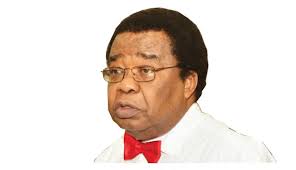Former Foreign Affairs Minister Professor Bolaji Akinyemi has said that Nigeria is on the verge of bankruptcy due to incessant borrowing, adding that in six months, President Tinubu’s administration has borrowed more money than the previous government.
Prof Akinyemi stated this while delivering the keynote address during the 2024 edition of the Diamond Award for Excellence, held in Lagos.
Speaking on the topic, ‘Emerging Challenges and Governance in Africa: Nigeria Perspective,’ he said although the problems we face in Nigeria are global problems, there are things government shouldn’t do given the circumstances the country is in, like buying new cars for National Assembly members, stressing that “it is called balancing of wisdom.”
Akinyemi said that for the past two weeks, there have been riots in Kenya led by youths, adding that this protest is because the youths have no jobs, yet the government is increasing and imposing new taxes on them. This, he said, is not because the government is wicked but because the government is broke, stressing that “when the government is broke, there will be disaster. When a country goes bankrupt, you cannot borrow more; the only thing you can do is raise internal taxes.
“If you are not careful, if you have borrowed money from your so-called friends, the foreign bodies, and this is the mistake we are making not just in Africa, borrowing money from foreign bodies.
“This is the dilemma that Kenya faces now, and not just Kenya; there are many countries in the world that are on the verge of bankruptcy, and Nigeria is one of them.
“I heard in the news that in six months, this present government has borrowed more money than the previous one. It is because of the debt they inherited from the previous government. And they have to borrow money externally to fulfil the promises they made to the citizens.”
He added, “If I were there, I wouldn’t buy new cars for NASS members. I’ll tell them to give me one year at least.
“I see what is happening in Kenya will happen here. ASSU has again threatened to go on strike. If ASSU goes on strike, the students will join. And the Nigerian Labour Congress is still demanding their own.”
Akinyemi further noted that “aside from the internal crisis we have, we also have problems with leaders, saying that sacrifices must be made by the government and the citizens.
His words, “We must take that brotherhood in our anthem seriously. Brotherhood doesn’t mean you should give the job to your people alone. That is not brotherhood, brotherhood is bringing everybody together, irrespective of tribe and tongue. Government must make policies that bring us together and not divide us.”
Prof Akinyemi also recalled his time during the military regime, noting that he has no regrets about serving the military as it afforded him the opportunity to serve Nigeria at a critical point in the country’s history.
“I have no regret serving the military. Awolowo served the military and was at a time the deputy to General Gowon. Azikwe served as adviser to Ojukwu. Enahoro served as commissioner under the military government.”
On celebrating 25 years of uninterrupted democracy, Akinyemi, who stressed that effective governance in Africa is only realisable when leaders put the interests and livelihoods of the people first on their agenda, said, “We are not celebrating 25 years of democracy but civilian rule. That is because democratic and civilian rules are different.
“Democracy has to do with the provision of food, infrastructure, and security of life; access to education; and other basic needs of life. We are not enjoying all these things, and until we are enjoying basic livelihood, then we can talk of democracy in Nigeria.”
source: Vanguard



